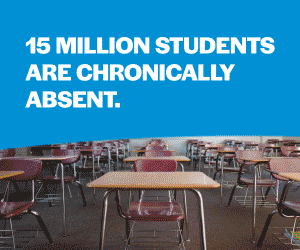 Frederick County Public Schools teachers being instructed in the science of learning during a December 2023 training session at Leaning Forward’s Annual Conference in Oxon Hill, Maryland. (Frederick County Public Schools)
Frederick County Public Schools teachers being instructed in the science of learning during a December 2023 training session at Leaning Forward’s Annual Conference in Oxon Hill, Maryland. (Frederick County Public Schools)
On a recent afternoon, Caroline Able, a first-grade teacher at North Frederick Elementary School in Frederick County, Maryland, sat in a small office with her principal, Tracy Poquette, carefully practicing the next day’s math lesson.
Able, who is in her third year teaching, walked through each step, demonstrating how she was going to present comparisons between two numbers, then what students would do. She sometimes stopped to focus on granular details: Should she go over math vocabulary words like sum and difference beforehand, or will her students remember what they mean? Should students write down problems and answers in notebooks, or on mini-whiteboards?
Poquette recommended the whiteboards. “You’re going to ask them to hold them up,” Poquette coached Able, miming holding a whiteboard in the air. “Then you can see their answers, and how they got to that. Every student is responding.”
Giving students multiple chances to “respond,” or provide answers, is a learning strategy supported by research, and part of why Able is here — to ensure that she’s incorporating evidence-based practices into her teaching. The sessions are meant to accelerate student learning and take some of the guesswork out of becoming an effective teacher, part of a larger district plan to incorporate research from the fields of neuroscience, educational psychology and cognitive science — often referred together broadly as the ‘science of learning.’
Frederick County, situated about 50 miles north of Washington, D.C., and 50 miles west of Baltimore, is a diverse district with 69 schools and 48,000 students, and one of only a handful to use learning science research to try to improve schools at scale. Launched in 2015, it’s the centerpiece of a school improvement plan, and leaders say the goal is to raise academic achievement overall, as well as shrink stubborn gaps between more advantaged students and their less advantaged peers.
“As a district, we’ve been talking about achievement gaps for a long time,” said Margaret Lee, Frederick County’s director of organizational development who has led the charge toward the science of learning. “I’ve seen it in every role that I’ve had, always looking at what could make the difference. Like every district in America, every silver bullet that people thought up had been peddled to us. It started to frustrate me that none of these things were making a difference, and that was a catalyst that led us here.”
The district is seeing steady progress in a positive direction, even when accounting for pandemic-related learning loss. Third-grade English Language Arts scores, for example, on the Maryland Comprehensive Assessment Program test, rose from 49.5% proficient in 2018, to 60% proficient in 2023 — 12 points above the state average. In math, students from disadvantaged groups have also seen steady gains. African-American third graders were 38% proficient in 2018, but rose to 43.8% by 2023; over five years, low-income Title I third graders slowly grew from 32% to 37.6% proficient.

























